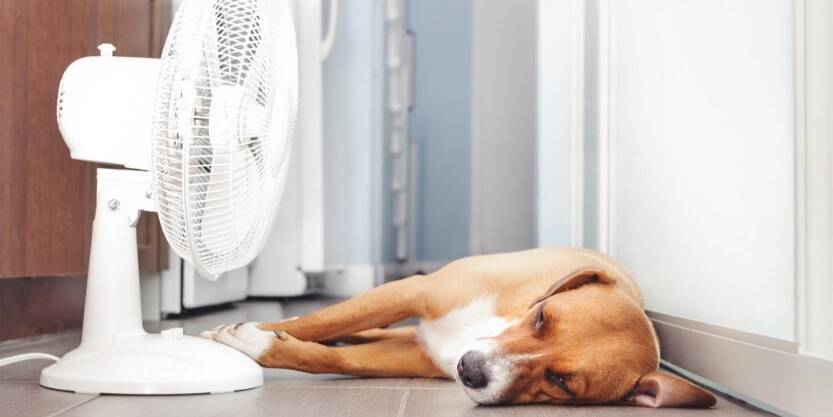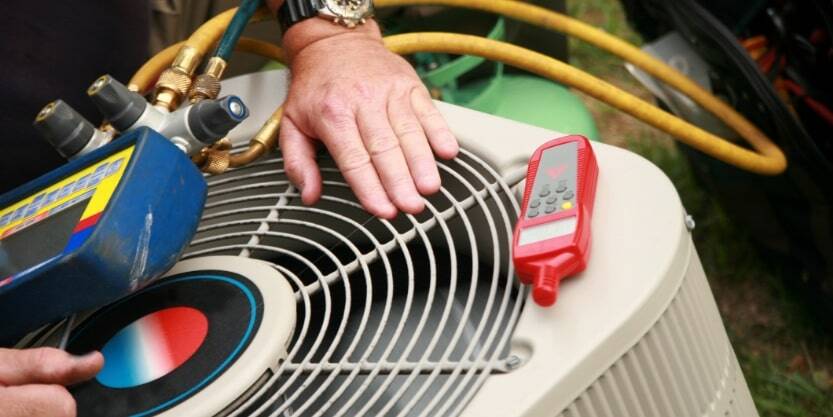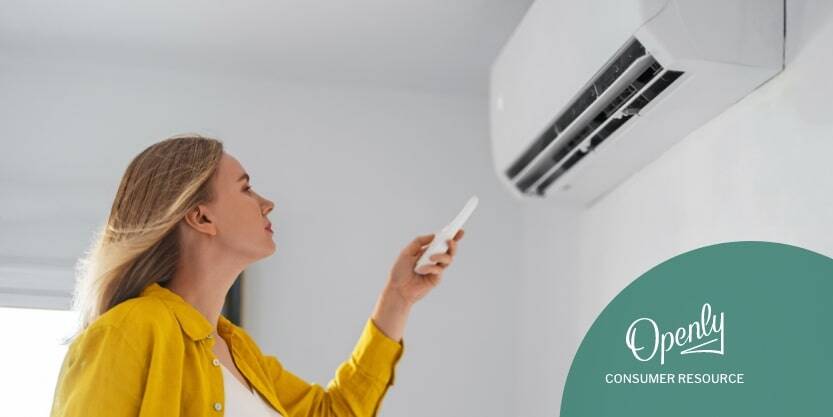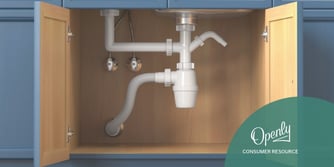Owning a home brings a sense of pride and responsibility. But with ownership comes the burden of unexpected repairs and maintenance costs. Heating, ventilation, and air conditioning (or, HVAC) systems provide year-round comfort, but when they break down, they can be expensive to repair or replace. This begs the question: does homeowners insurance cover HVAC?
In this article, we’ll explore what's typically covered, when to file a home insurance claim, and preventative measures to keep your HVAC system running smoothly.
At a glance:
- A standard homeowners insurance policy won't cover normal wear and tear, lack of maintenance, or manufacturer defects. To avoid claim denials, thoroughly review your policy’s specific exclusions and limitations for HVACs.
- Consider adding equipment breakdown coverage to your policy for broader protection against potential mechanical failures of your HVAC system.
- Consider working with an independent agent to get personalized advice and find the best homeowners policy for your needs.
Basics of HVAC and homeowners insurance
Imagine a cozy home on a cool evening, the air warm and comforting; or a hot summer day with cool relief readily available from your air conditioner. That's the magic of HVAC. But what exactly is HVAC, and how does it tie into your homeowner's insurance coverage?
What is HVAC?
An HVAC system regulates temperature, ventilation, and air quality, and may include the following:
- Furnace or heat pump—This device is responsible for generating heat.
- Air Conditioner—The AC unit pumps cool air throughout your house to keep it at a comfortable temperature on those hot days.
- Ductwork—Tunneling through your house, ductwork transports hot and cold air from your furnace or AC unit throughout your house.
- Thermostat—The control center of your HVAC, the thermostat monitors the temperature of your home and sends signals to either your AC unit or your furnace / heat pump to adjust the temperature as needed.
Overview of homeowners insurance
Homeowners insurance safeguards your property against a number of perils, including fire and theft. However, it's important to understand the specifics of your policy, as not all damages or losses are covered by all home insurance providers or policies.
Homeowners insurance typically covers the following:
- Dwelling coverage—This covers the structure of your home from a variety of covered perils, which can include theft, fire, and wind damage.
- Personal property coverage—For all the items you cherish inside your home, including electronics, clothing, and other items, personal property coverage will help reimburse you for covered losses or damages to your personal belongings.
- Liability coverage—If someone is injured while visiting your home and decides to sue you, liability coverage may help cover legal fees and settlement costs.
HVAC coverage in homeowners insurance
While keeping your home at a comfortable temperature is important, unexpected repairs to HVAC systems can be a costly burden for homeowners. So how does HVAC tie into homeowners insurance? It depends on the cause of damage to the home’s HVAC system.
The good news is that standard homeowners insurance policies typically offer some coverage for HVAC systems. This coverage usually applies when the damage is caused by a covered peril outlined in your homeowners insurance policy. Covered perils typically include sudden and accidental events, such as lightning strikes or hail storms.
For instance, if a lightning strike damages the electrical components of your HVAC unit, your home insurance may cover repairs or even replacement cost of the HVAC unit, depending on your policy’s coverage limits, deductibles, and exclusions.
Exclusions and limitations
It's important to remember that homeowners insurance doesn't cover everything and not all policies are created equally.
Here are some common policy exclusions when it comes to HVAC systems:
- Normal wear and tear—HVAC components naturally wear down and malfunction, just like any other appliance. This is considered normal wear and tear and isn't covered by home insurance.
- Lack of maintenance—Failure to regularly maintain your HVAC unit can lead to breakdowns that won't be covered by home insurance.
- Manufacturer defects—If your HVAC system malfunctions due to a defect from the manufacturer, your warranty (if you have one) might cover repairs, but your homeowners insurance policy likely will not.

Claiming for HVAC damages
Minor issues are part and parcel with HVAC units. They come with the territory and are just part of owning one. But what happens if you have a serious issue with your HVAC unit?
When to file a claim for HVAC damages
If your system sustains significant damage due to a covered peril and requires repairs exceeding your deductible, filing a claim is a viable option.
It’s important to file your claim promptly, and not wait too long after the damage occurs to get the ball rolling on your insurance claim.
HVAC Insurance Claim Process
Here's a 3-step guide to filing an HVAC damage claim:
- Notify your home insurance company as soon as possible after the damage occurs. The sooner the claim is filed, the sooner your HVAC system can be put back to rights.
- Keeping good records is handy when it comes to homeowners insurance. Collect photos or videos of any damage, repair estimates, and any maintenance records you have filed away. The more documentation you have, the smoother the home insurance claims process will be.
- An insurance adjuster may be sent to your home to assess the damage and estimate the cost of repairs. Be ready to answer any questions they have and provide any additional documentation they may request.
Cost considerations for HVAC insurance
HVAC unit breakdowns can be expensive. And while the HVAC coverage included in your homeowners insurance policy can help with unexpected costs, the cost of your policy itself can vary.
Here are two key factors impact the cost of your HVAC coverage:
- Deductibles—This is the amount you will pay out of pocket before insurance will pay for covered repairs or replacement. Choosing a higher deductible lowers your annual premium, but it also means that you will pay more upfront for repairs should something go wrong with your HVAC unit. Be sure to choose a deductible that balances affordability with your risk tolerance.
- Coverage limits—This is the maximum amount your insurance company will pay out for a covered loss. Higher coverage limits provide more protection, but come at a higher premium cost.
The goal is to find the right balance between the cost of coverage, and protection limits in your homeowners insurance policy.
One method for striking the right balance is shopping around for the right home insurance provider and the right insurance policy to fit your needs and circumstances.
Comparing insurance providers
It’s not always the best idea to settle for the first quote you receive, and comparing quotes from multiple providers can help you find the best coverage for your needs and budget. Consider the following:
- Coverage—Pay attention to what each policy covers for HVAC systems, including standard coverage and any available add-ons.
- Deductibles and limits—Compare how providers stack up in terms of deductible amounts and coverage limits. This can help you find the best value for your money.
- Price—While cost is important, don't prioritize the cheapest option at the expense of comprehensive coverage

Preventative measures and HVAC care
Like any well-oiled machine, HVAC systems need care and maintenance to run smoothly and efficiently year round.
Regular maintenance and inspections
Regular maintenance is vital for keeping your HVAC system functioning optimally has several benefits, including:
- Extending the lifespan of your HVAC system—Regular maintenance may reduce the rate of which wear and tear occur, reducing the risk of expensive replacements.
- Avoid breakdowns—Preventative care, like scheduling annual servicing of your HVAC system, can help identify and address any potential problems before they snowball into a major headache.
Upgrading and updating HVAC systems
While replacing your entire HVAC system is not always feasible, upgrading to a modern, energy-efficient HVAC system is worth considering for the long-term benefits:
- Lowered utility bills—Modern systems use less energy while simultaneously operating more efficiently, which can potentially lower utility bills.
- Enhanced reliability: Newer systems are often more reliable and less prone to breakdowns, allowing for maximum—and consistent!—comfort.
Upgrading your system might initially be a significant investment, but the long-term benefits may outweigh that initial cost, making it a worthwhile decision.
Openly’s approach to HVAC coverage
At Openly, we understand the importance of comprehensive homeowners insurance, especially regarding HVAC systems. We work with independent home insurance agents to tailor homeowners insurance policies to your specific needs, including HVAC coverage and equipment breakdown endorsements.
Working with independent agents
Openly leverages a network of independent agents who act as expert advisors, helping you understand your needs, and helping you choose the right policy by comparing insurance providers and policy options. Independent agents provide personalized service and expert advice to ensure you get the best possible coverage at a cost you can comfortably afford.
Ensuring adequate HVAC coverage
Understanding homeowners insurance and its coverage for HVAC systems empowers you to make informed decisions. By proactively maintaining your system, understanding your home insurance policy, and exploring available coverage options, you can ensure your HVAC system is adequately protected.
For comprehensive and tailored HVAC coverage, consider Openly and our network of independent agents. Let us help you create a peace-of-mind plan that safeguards your home comfort throughout the year. When buying home insurance, our independent agents ensure you get the right coverage for all your needs, including robust HVAC protection.
* We provide this information to help you understand insurance. Any coverage is subject to the terms of your policy. Please refer to your policy and declarations page for complete terms, conditions and coverage details.




